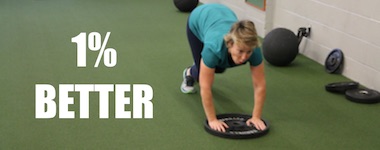
I went to the annual conference for trigger point therapy about a month ago. It was great to learn new techniques from other therapists for treating musculoskeletal pain. I was very excited to attend all the lectures because they were all about pain management, but the approach to the treatment was quite different: aroma therapy, plant based diet to avoid inflammation of your body, how to realign the pelvis, etc. Above all, one lecture really attracted me; it was a “Laughter Workshop” by James Masica, who is a state-licensed clinical mental health counselor and organizational development consultant. Does laughing have anything to do with pain management? Yes! There is scientific evidence that suggests laughing actually helps your overall health and treatment for your pain. I would like to share some of the experiences that I had at the conference. I hope it will help you want to smile more for your health!
At the beginning of the lecture, we all practiced “How to laugh”
“Hee Hee Hee”
“Ha Ha Ha”
“Ho Ho Ho”
You can’t be shy! We were laughing really hard and loud for NO REASON (at first), which cracked everybody up and we were laughing even more. Then he told us that we have spent our lives confusing laughter with humor. Laughter is physical; humor is mental. Human beings are “hard wired” to laugh from birth. It’s something nature has built into every one of us. Even little babies laugh; obviously it’s not in response to something “funny.” Laughing is a physical act that makes us feel good.
Children laugh 150-200 times a day; adults laugh just 15-20 times a day. That’s a lot of missing laughter! But no worries, it hasn’t actually gone away, and it’s surprisingly easy to re-discover our laughter capacity. It has been covered over with our ideas about adulthood and responsibility. Growing up, we don’t get many messages about the importance of retaining our capacity to laugh. We might have even been discouraged from laughter. But medical and organizational sciences are proving what we sense intuitively- laughter is an important ingredient in optimal functioning. A lack of laughter is a warning sign– for organizations, individuals, and relationships.
The physical act of laughter causes a whole spectrum of changes in the body and therefore the mind. Catecholamines, a type of brain chemical, are increased, which boosts mental functioning across the board. Alertness, memory, generosity and cooperation are all increased. The feel-good brain hormones called endorphins flood into the body. These are the brain’s natural pain-killers, and part of the reason why we feel so good after a good laugh.
The body’s immune system also gets stronger with laughter, as the T-cell count and other immune functions work better. One reason for this is that laughter decreases stress hormones, such as cortisol, which are associated with the flight-or fight response. Stressful modern lifestyles tend to feed this response, which is sometimes compared to driving with your feet on the accelerator and brakes at the same time!
A University of Maryland School of Medicine study found people with serious heart disease laughed significantly less in everyday situations. Another found 40% less risk of a second heart attack for people who participated in a laughter study. There are many, many more instances of health benefits associated with laughter.
But the benefits are not only for the individual; groups, organizations and relationships are all improved by laughter. Since it improves a person’s over-all mood, we become more cooperative, generous, and interested in those around us. Laughter is seldom a solitary activity- it almost always is shared with others. It dissolves tensions and makes us more inclined to see others in a positive light. The companies on Forbes Magazine’s “100 Best Places to Work” list have only one thing in common- they are all described as “fun places to work.” And in relationships, the number one characteristic people look for in a partner, “They make me laugh.”
So….. We need to laugh more!! What great effects laughter brings to us! By the end of the laughter workshop, sure enough I felt wonderful. Then I questioned myself, “How much do I laugh on a daily basis? I think I am pretty happy…?” As fitness professionals our hours can be tough. We start working pretty early and finish late. Some mornings are tough to have a lot of energy. BUT, I realized I always feel great after I say hi to our clients and smile! I just didn’t know how much our clients giving me energy and helping to increase “feel-good hormones.” Also, I have many friends who make me happy and with whom I am always laughing. I love to laugh! Now, since I know the effects of laughing, I can use it when I don’t feel well! Interestingly, I learned that even fake laughing and smiling has the same effects because the contraction of muscles in the face tricks your brain and “good chemicals” are released.
In this holiday season, we get to see family and friends to celebrate the holidays. I hope you can catch up with them with great laughs and smiles, and have a wonderful time!
Last but not least, James gave us “The Six Practices of Good-Hearted Living that put more laughter and lightness into your life.” I hope it will enrich your life as well!
“One for every day of the week; they’ll give your attitude a tweak”
Monday is for compliments. Look for the good in others and in yourself. Pay compliments, publicly if appropriate. A compliment means something is going right -acknowledge it!
Antidote for: judgmentalness, being overly critical, overactive ego, pessimism.
Tuesday is for flexibility. Try something new, be it big or small. Try saying “Yes” when you would usually say “no”. Be open to accepting the unexpected. Eat something different for lunch.
Antidote for: hardening of the attitudes, habits turning into ruts, loss of creativity, creeping rigidity.
Wednesday is for gratitude. Thank God it’s Wednesday! Cultivate gratitude for things great and small all day. Be grateful you have shoes on your feet. Is that big thing or a little thing? Regardless, be grateful for it. Remember, “Gratitude precedes joy.”
Antidote for: negativity, focusing on lack, consumerism, greed.
Thursday is for kindness. Do small things (and occasionally large ones) that make someone else’s life easier. A prime day for random acts of kindness. Extra points for kindness to people that don’t seem to deserve it- the crabby, the rude, the unappealing. (Don’t they need it the most?)
Antidote for: stinginess, mean-spiritedness, generally being a sourpuss.
“We feel that what we are doing is just a drop in the ocean. But the ocean would be less because of that missing drop.”-Mother Theresa
Friday is for forgiveness. Let go of resentments, grudges, irritation. Liberate yourself: forgive! Get silly with it. Try radical forgiveness: forgive your shoelace for breaking, the light bulb for burning out. Who knows, maybe you’ll get to the point of being able to forgive the jerk behind you for blowing his horn the instant the traffic light turns green.
Antidote for: anger.
“Holding a grudge is like swallowing poison and expecting the other person to die.”
Weekends are for Chocolate. Do things that make life sweet for you. Chocolate is a metaphor for what makes life worth living for you- whatever restores, refreshes, and revitalizes you. Don’t make the weekend two more days of work. Feed your zest for life, soak up leisure-time pleasures. Do the responsible thing and play: a recent study found NASA technicians were 40% more efficient when they came back from vacation!
Antidote for: Caregiver burn-out, loss of creativity, insufficient episodes of joyfulness.
“Then I commanded mirth because a man hath no better thing under the sun than to eat, drink, and be merry” – Ecclesiastes 8:15
Taken together, these 6 simple practices will gently permeate your outlook on life. Space can be created for the simple pleasure of frequent laughter. You can laugh more easily and more often. You’ll like the effect it has on your connections with people.



Leave a Reply